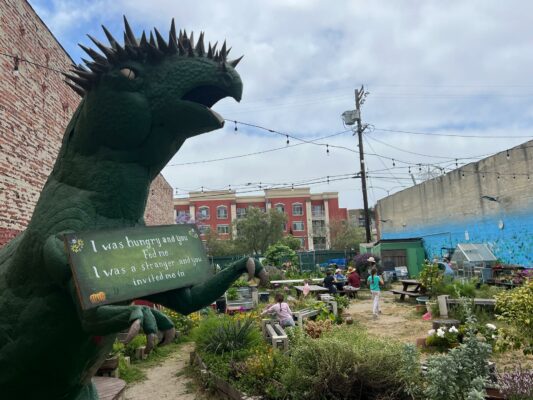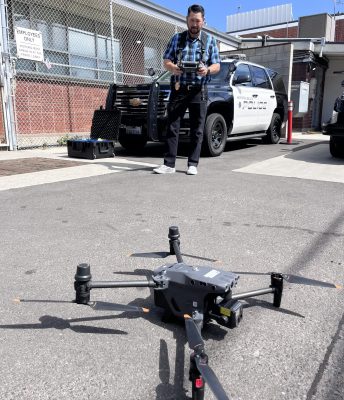by Chiany Dri
[Editor’s note: Chiany Dri is an anti-racism educator and the Public Relations Lead for the Justice for Bruce’s Beach Movement.]
In reading some of the responses to the issue on the parking ticket received by Chief Duane Yellow Feather (“Bruce family rep receives ticket on BLK MAN AVE,” ER May 20,2021), I feel it’s important to share some thoughts.
Yes, it is likely correct that BLK refers to block and MAN to Manhattan.
I have seen this on citations before; it’s not uncommon. However, I would have hoped that upon this coming to light, city officials and leaders would have a conversation that shifted judgment to curiosity and allowed for solution building instead of dismissiveness.
What I’m seeing happening in the string of email responses, instead, is a Black man confronts racism because that is how he experiences the world, and white city officials are responding, saying that Duane is wrong and that he is calling city leaders, officials, and the City of Manhattan Beach racist. The message really seems that Duane should be embarrassed, basically, for even assuming this was rooted in racism.
There has been no acknowledgement of the fact that Duane is completely entitled to feeling like this was a targeted attack, based on historical documentation and experience over almost a century and into this very moment, of racism both overt and covert in Manhattan Beach. We have city officials emailing Justice for Bruce’s Beach, begging for us to stay quiet about this issue, scoffing at us for even THINKING it could have anything to do with race, as if racism doesn’t exist.
A good city leader, an experienced city leader, and a just city leader, would say something along the lines of:
“I hear your concern. I understand how reading this would lead anyone to think that it was referring to ‘black man’. As per our ticketing procedures, it refers to Block Manhattan, but I understand that this is not how it is read and that the impact of this is harmful to communities of color. Because we never want to cause our communities stress or be insensitive to very real racial inequities, our department will take a look at our future procedures and ticketing to see how we can avoid causing future harm to communities of color in Manhattan Beach.”
(The only person I saw remotely do this in any way, shape or form was Mitch Ward. But even then, I’ve seen absolutely no promise to change this procedure at all.)
That’s the kind of response I would want to see from ‘leaders’ in a community. One that acknowledges that there is a very real and valid reason for Duane and the rest of us to see this as an issue and a response that doesn’t gaslight those experiences, but honors them, provides compassionate explanation, and promises to do better moving forward.
That is the kind of leadership we should all strive to embody and that we all deserve to experience. Hopefully you can agree and hopefully there can be more of an effort in the future for solution building and tending to the deep wounds of this community, together. It is our responsibility to each other to heal past traumas in our communities and to build bridges and trust for this work to begin and be maintained. ER









